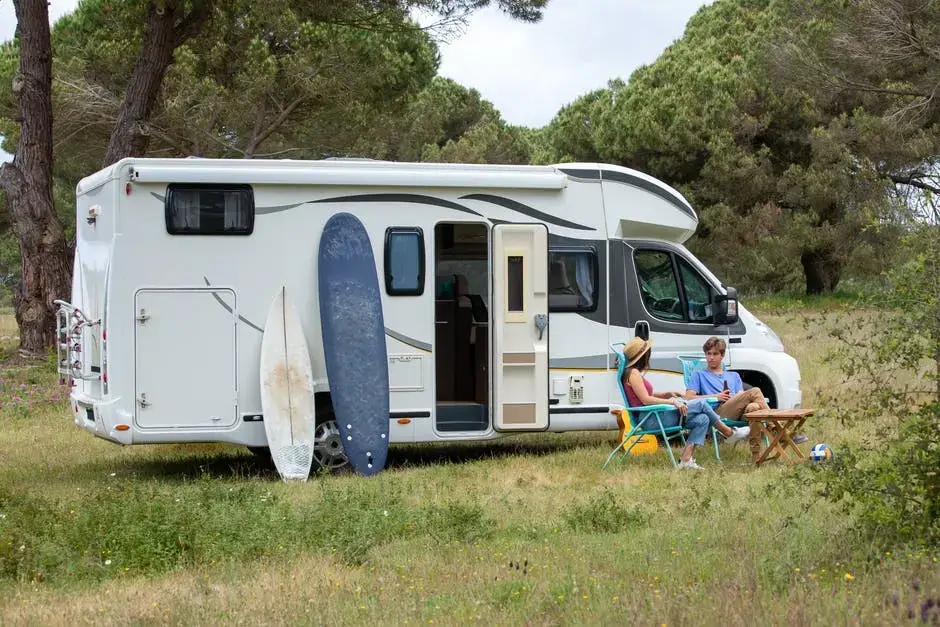What to Consider When Buying an RV

Are you excited about the idea of going on adventures but unsure how to make that dream a reality?
First of all, there’s the cost. Buying an RV can be a massive investment, especially if you want to get a model that will last for years to come. Then there’s the reality that once you buy an RV, it won’t be a passing fancy, and you’ll have to maintain the vehicle to keep it in good condition.
Here’s a simple guide on how to buy an RV!
Determining Your RV Needs
When determining your RV needs, it’s important to consider the type of RV you need, the lifestyle that you want to create, and your overall budget. Consider the size of the RV you will need to accommodate all of your passengers, and if necessary, think about how much storage space you will need.
It’s important to determine the type of activities you want to do while on the road so that you can choose the right type of RV to meet your needs. Additionally, take a look at the different amenities available and determine which ones will be the most beneficial to you and your family.
Finally, set a budget and stick to it to ensure that you get the best value for your money. With a bit of research and careful consideration of your needs, you’ll be able to find the best RV for your lifestyle.
Estimated Costs for Purchase and Maintenance
When estimating the total cost of purchasing and maintaining an RV, there are several things to consider. First, set a budget for the purchase price of the new RV and consider different financing options.
Second, consider the ongoing maintenance costs associated with owning an RV. These costs can include materials, repairs, insurance, taxes, registration fees, and fuel. Additionally, depending on how often you plan to use the RV, you’ll need to factor in costs for storage and other related expenses to lance campers for sale.
Finally, establish an emergency fund in case of any unforeseen repairs that may arise. Being aware of the potential costs associated with an RV can help you to best plan and prepare a budget so that you can enjoy your RVing experience without interruption.
Deciding on Gas or Diesel
When it comes to considering what type of power source is right for your RV, it is important to weigh the benefits and drawbacks of each. Gasoline engines provide lower purchase costs and improved efficiency compared to diesel power, but diesel motors often offer longer service life, higher resale value, smoother performance, and superior fuel economy.
If you are buying a used RV, a conventional gasoline engine may fit within your budget. Newer motorhomes, however, may provide better value with diesel engines due to their greater durability and fuel efficiency. It is important to compare the engines of both models and weigh the advantages and disadvantages of each before making a final decision.
Additionally, the maintenance and repair costs of each type of engine should be taken into account when deciding which option is right for you.
Weighing Floorplan Layout Options
When buying an RV, it is important to consider the different floor plan options available. Think about the size of the RV and the types of activities you plan on using it for. Consider the number of people traveling, including yourself, and the amount of storage space needed.
For example, if you need to accommodate a lot of passengers or equipment, opt for an RV with multiple slide-outs or bunk beds. Also consider the features the layout offers, like kitchen area, bathroom, living room, and sleeping areas.
Additionally, the number of access doors and windows and the type of furniture can make a huge difference in the amount of space you are provided with and the overall look and feel of your RV. Overall, the layout you choose plays a big role in the comfort of your RV and should be carefully thought through.
Choose the Right Financing Option
When it comes to purchasing an RV, it’s important to consider the right financing option. Determine if you can pay in full upfront or if you need a loan. If you need to take out a loan, speak with a variety of lenders who specialize in RV financing to compare rates and terms before you sign any paperwork.
Shop around to determine what works best for your budget. Good interest rates and terms are important to keep monthly payments as low as possible. Consider both secured and unsecured options, and make sure to research the interest rates and terms before committing to any one loan.
Once you’ve chosen a loan, be sure you understand the loan’s terms, including interest rates, payments, repayment structure, and any fees or charges that may be attached.
Explore More About Buying an RV
In conclusion, buying an RV is a major investment that must be thoroughly thought out and researched. It is important to consider the primary elements listed above. Taking the time to thoroughly evaluate each aspect thoroughly can ensure that your RV buying process is a smooth and successful one.
Do your due diligence and research on the dealers, size and type of RV, cost and budget, maintenance and storage options, and the RV lifestyle, and compare available options.
Did you find this article informative? Check out the rest of our blog for more!
